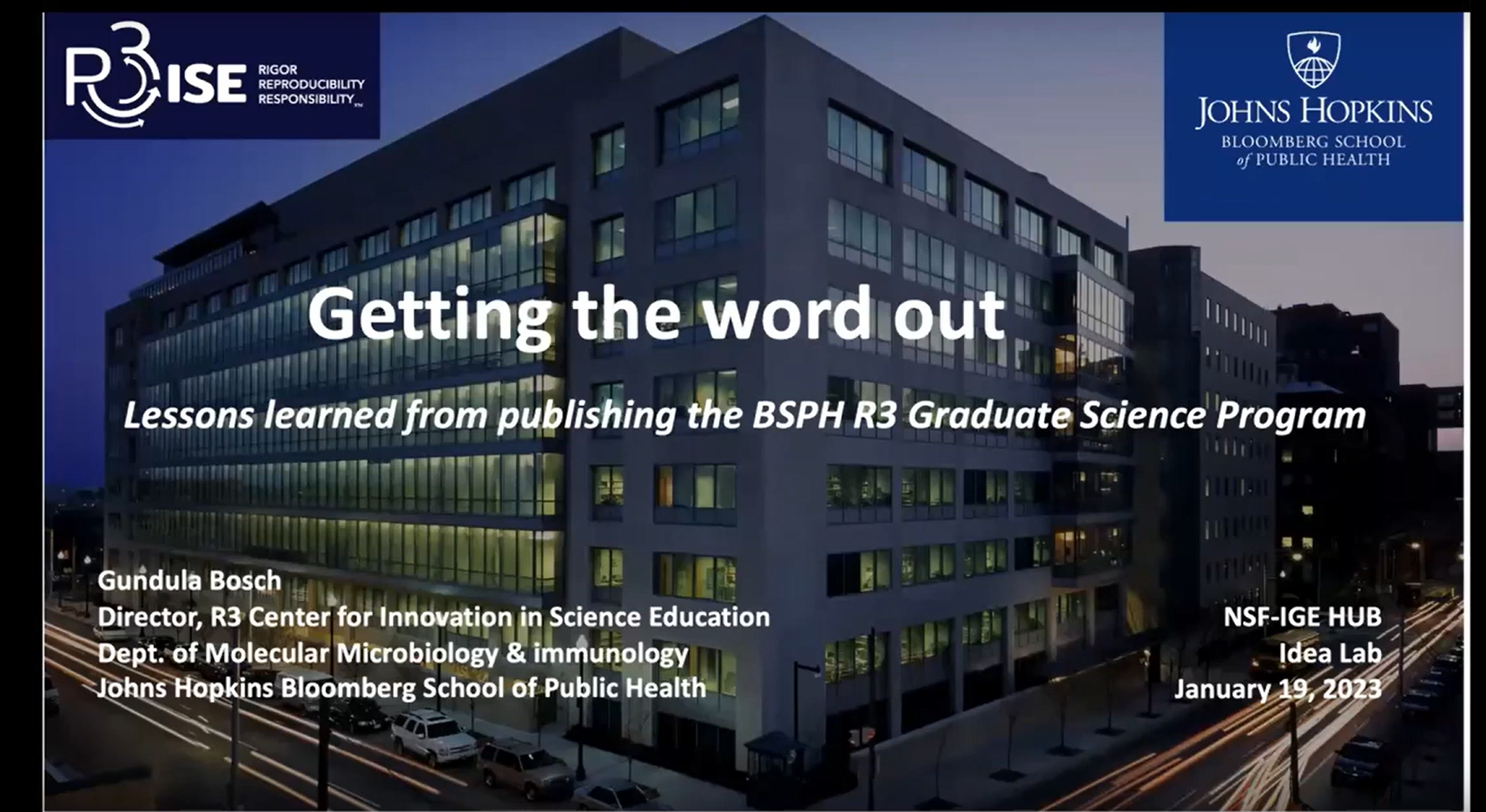R3ISE across the disciplines
Research studies do contain errors, but reproducibility problems in research cannot always be explained as a function of innocent human errors. The reasons likely range from mistakes in daily research practice to misconduct and fraud. Better ethics education is one mechanism that can lead to better conduct in science. Mandatory courses such as “Responsible Conduct of Research” (RCR) serve to teach topics in the field of science ethics and integrity at most institutions. Much has been published on improving the pedagogy of research ethics education, however, many RCR courses still focus on describing flawless ethical practice on the one hand and denouncing cases of outright misconduct or fraud on the other. The large grey zone in between, the so-called questionable research practices (QRPs) are rarely taught in a formal manner. Yet they play an important role for ethical decision making in day-to-day scientific practice. Johns Hopkins University is filling that critical gap in graduate research ethics education.
Through this award, the RCR course that is currently offered at Johns Hopkins is being supplemented with an established, online learning module on principles and applications in scientific error analysis with a focus on questionable research practices (QRPs), which has been tested in a low-enrollment setting. The Rigorous, Responsible and Reproducible Practice in Science and Engineering (R3ISE) module is utilizing a novel error analysis and quality-improvement approach.
The goal of this research comprises assessing the learning outcomes of the R3ISE module in a large and diverse student population across the life, natural, and social sciences, as well as engineering and technology. The study will appraise students’ critical thinking, scientific reasoning and collaborative communication skills around analyzing and avoiding scientific errors in general and QRPs.
- Read the abstract
- View the slides from this project’s presentation at the 2024 PI meeting
- Learn more with JHU’s Bloomberg School of Public Health

IDEA Lab 2, Pt. 1: Strategies for Broadening Dissemination and Impact
PI Gundula Bosch presents what she's learned to the broader IGE community.

